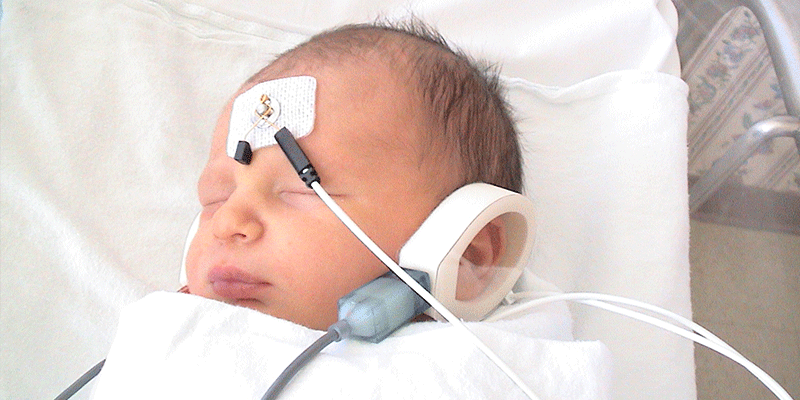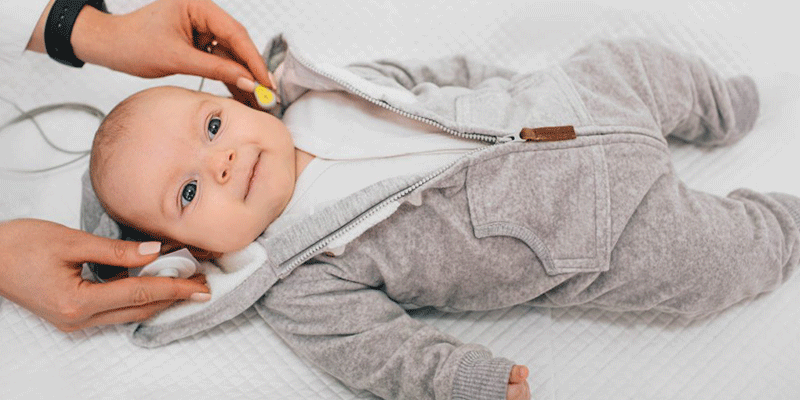
What if my baby does not pass the initial hearing screening?
If your baby does not pass the hearing screening at birth, it does not necessarily mean that she is deaf or hard of hearing. Fluid or vernix inside the baby’s ear, for example, or too much noise in the room can affect results. In fact, most babies who do not pass the newborn screening have typical hearing. But to be sure, it is extremely important to have further testing done.
About 1 or 2 in every 100 babies will not pass the initial hearing screening at birth and will need tests with an audiologist who has experience working with babies. This testing should include a more thorough hearing and medical evaluation.
Be sure to talk with your baby’s pediatrician about scheduling further tests if your baby does not pass the initial hearing screening at birth. The additional testing should be done as soon as possible, but before your baby is 3 months old.
Follow-up testing may start with one more screening similar to the type done in the hospital. Some hospitals or clinics may complete a diagnostic test at the time of follow-up, instead of re-screening. In young infants, the follow-up testing may be able to be completed while the baby naps.
If my baby is identified as deaf or hard of hearing, what are the treatment and intervention options?
If your baby’s audiologist confirms hearing changes, treatment and early intervention with a team of providers should start as soon as possible. Just like hearing children, children who are deaf or hard of hearing can achieve many things. Studies show your baby will have the best chance for spoken language development―on par with that of hearing peers―if any hearing changes are discovered, and support and intervention begins by 6 months of age. The earlier, the better.
In addition to your pediatrician and audiologist, every baby who is deaf or hard of hearing should be seen by a pediatric otolaryngologist who specializes in the mechanics of the ear. Your pediatrician should also recommend seeing a pediatric ophthalmologist, because some children can also have problems with their vision, and children who are deaf or hard of hearing are dependent on their vision for language input. Many children are also seen by a geneticist to determine if there is a hereditary cause of hearing changes.
Your state Early Hearing Detection and Intervention (EHDI) program can help provide you and your pediatrician with more information. Babies who are deaf or hard of hearing should be referred to Early Intervention for evaluation and services. Additionally, the Individuals with Disabilities Education Act (IDEA) supports intervention programs for children who are deaf or hard of hearing within early intervention and school programming.
The audiologist, together with the otolaryngologist, can tell you the type and degree of hearing change and what the next steps are. These next steps can vary depending on your family’s choices, as well as the type and degree of hearing change.
Last Updated 12/28/2018
Source American Academy of Pediatrics Early Hearing Detection and Intervention (EHDI) Program (Copyright © 2018)
The information contained on this Web site should not be used as a substitute for the medical care and advice of your pediatrician. There may be variations in treatment that your pediatrician may recommend based on individual facts and circumstances.






